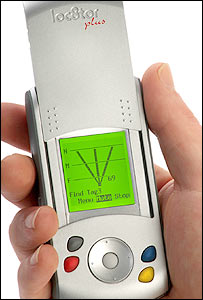I know there’s a lot of concern about how this is all Big Brotherish and turning the UK into Orwell’s “1984” state but my concern about this mobile fingerprinting is slightly different.
My problem with this is that the devices used to take the fingerprints is bound to be something that will get dirty and not correctly capture fingerprints – possibly giving incorrect information to the police officers involved. This is especially a problem if the fingerprint capturing surface is made of glass or plastic – it’s bad enough when you get fingerprints on windows and mirror, but having a glass surface full of mucky fingerprints when you’re trying to use fingerprints to identify someone is wacky and crazy. I’d be interested to know how they get around this potential problem.


